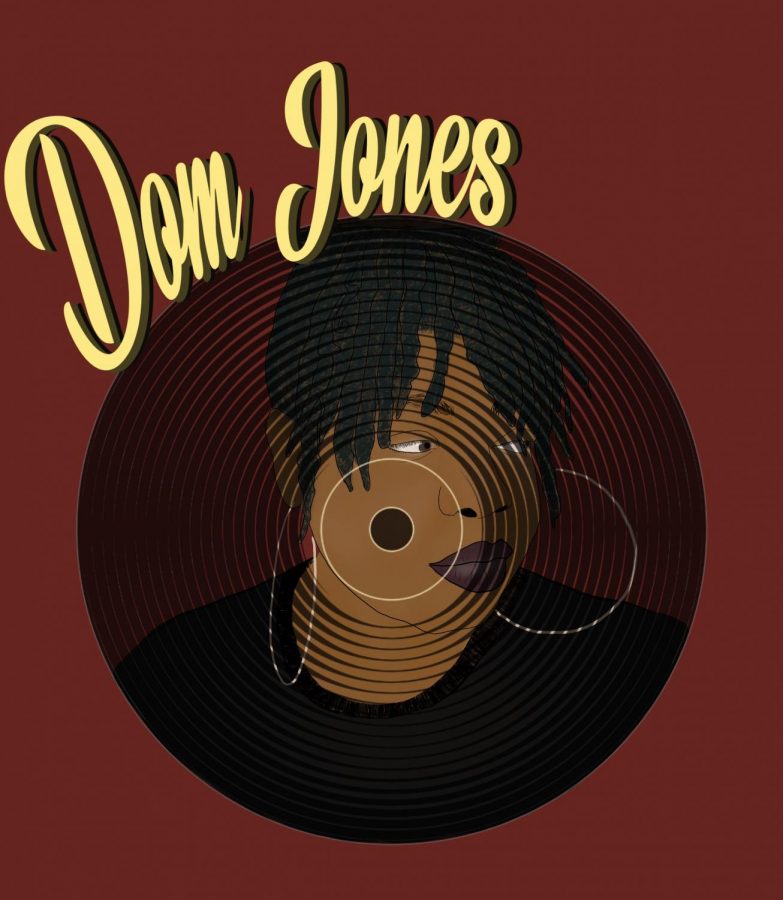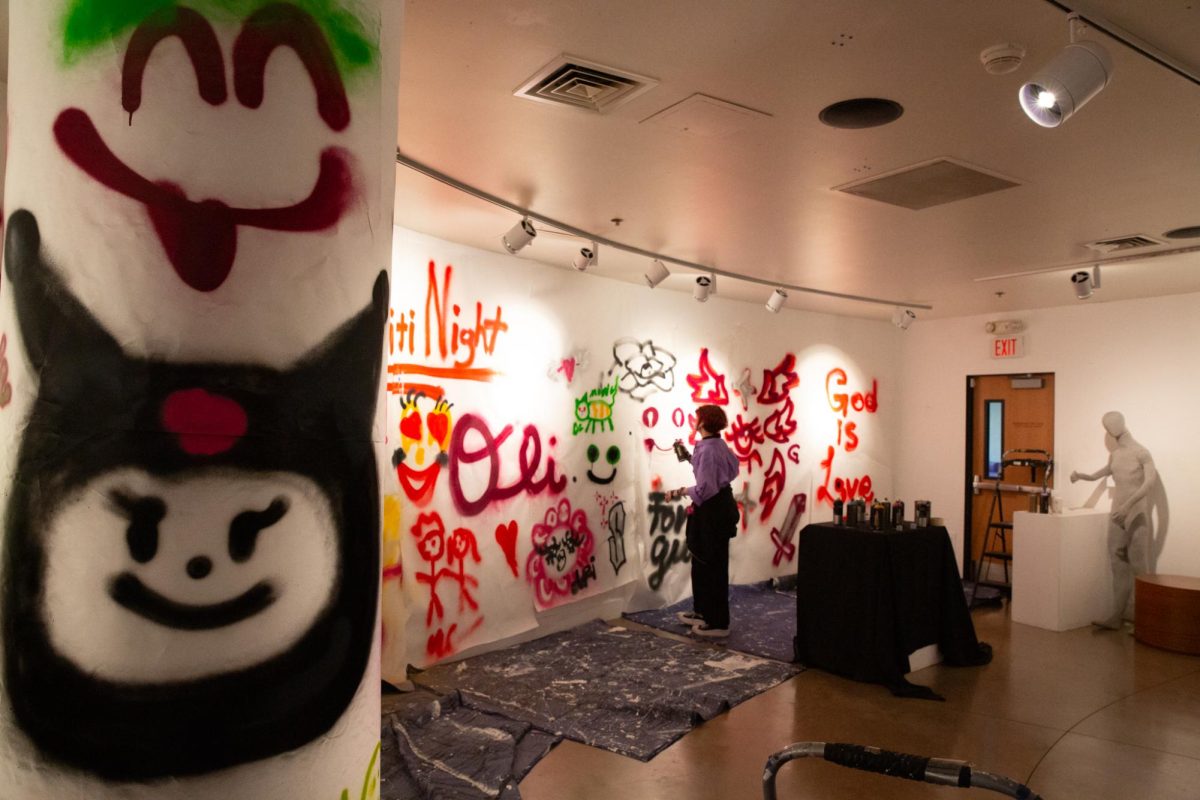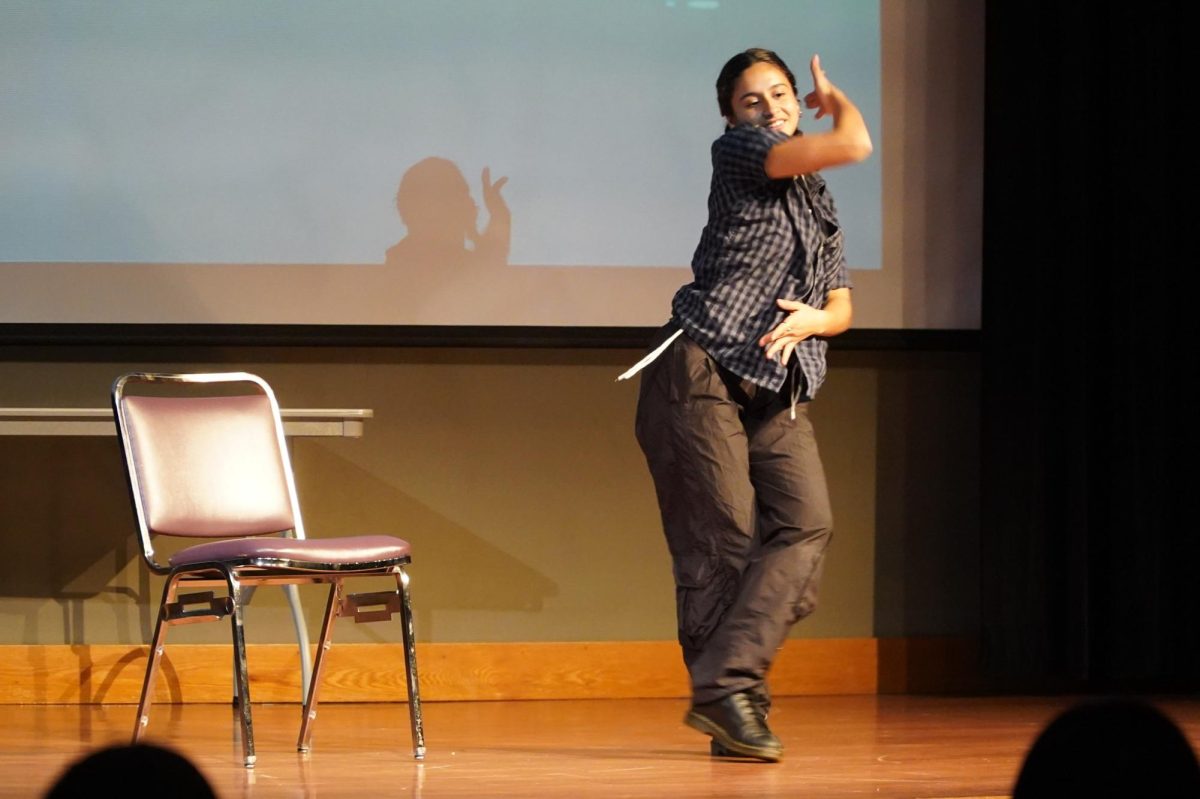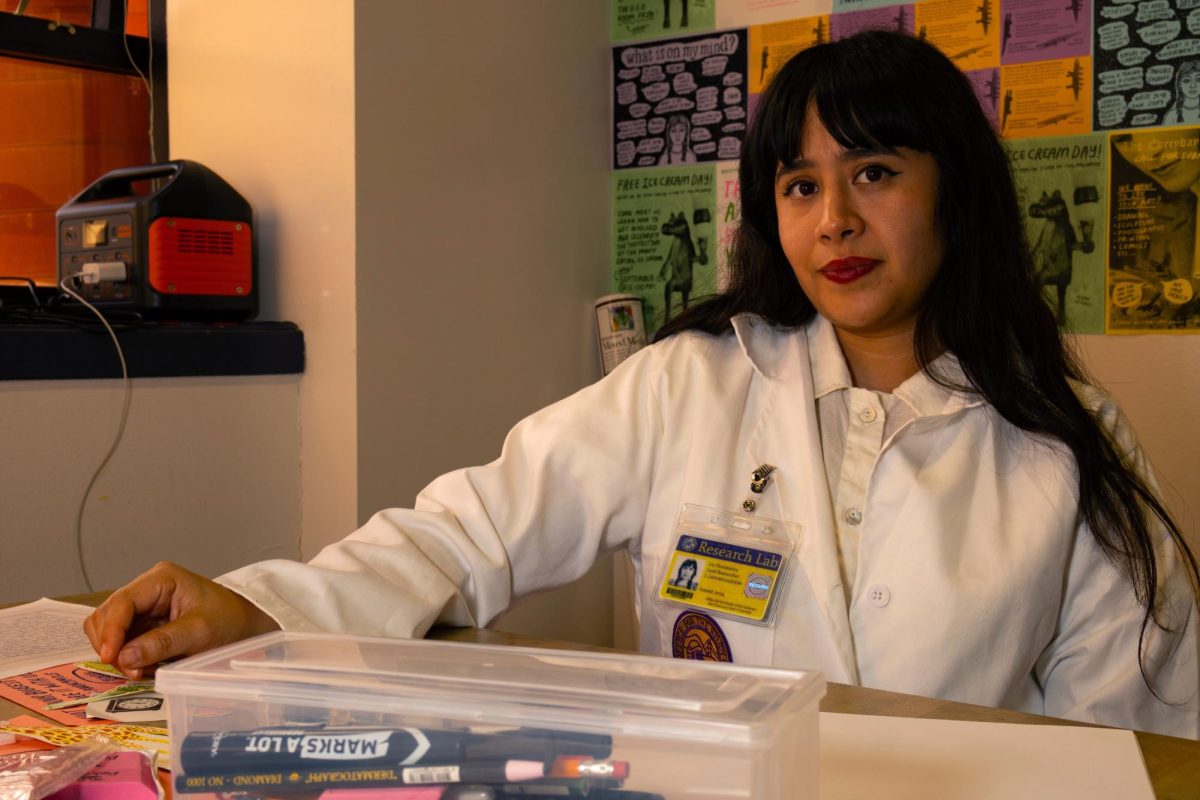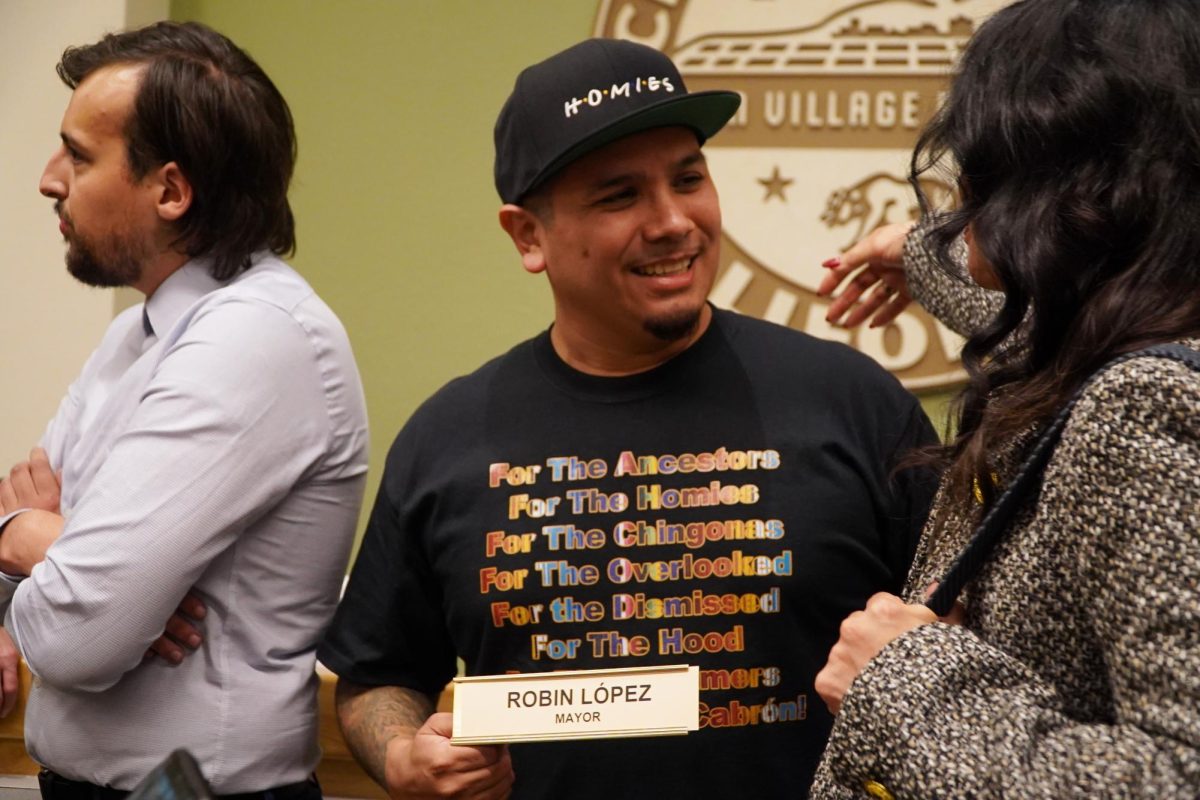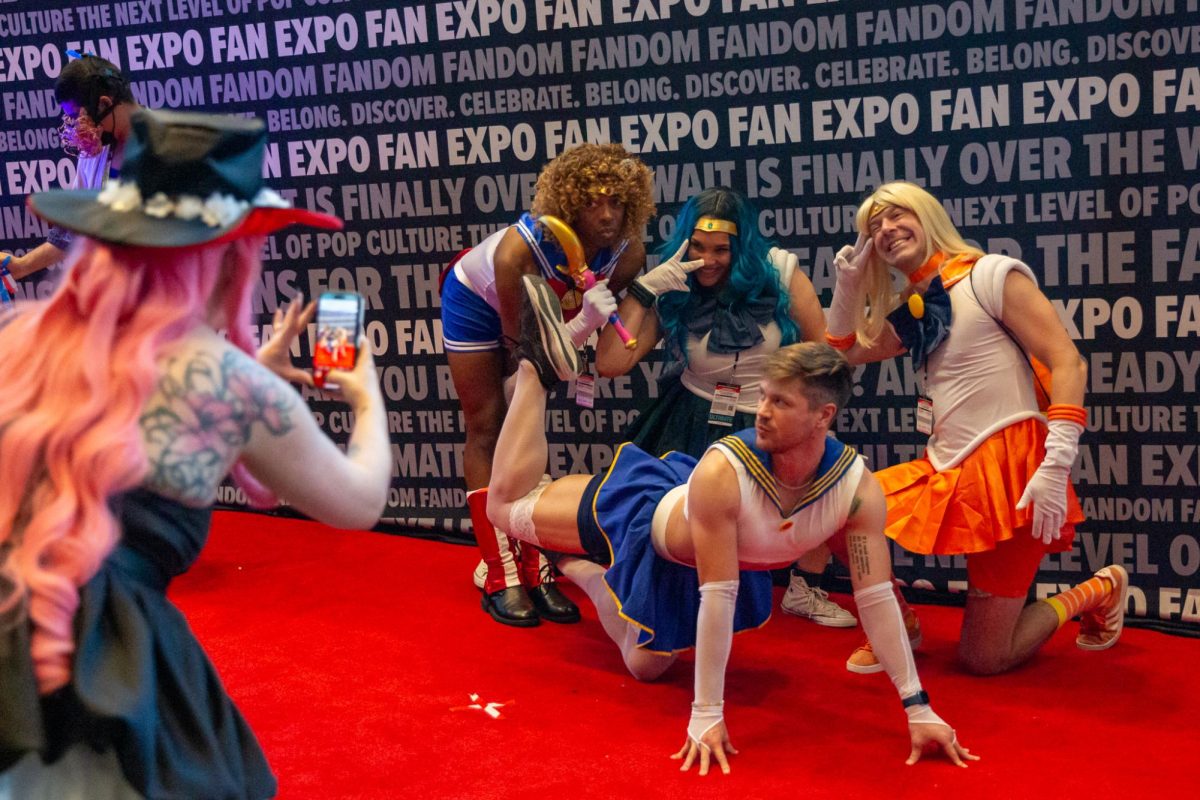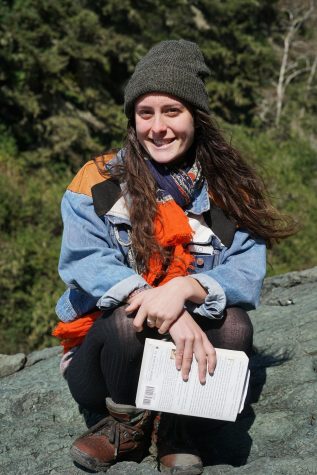Growing up in the Bay Area, Dom Jones remembers quickly immersing herself in the local music and poetry scene. She recalls not being able to turn on an episode of Def Poetry Jam without seeing someone from the Bay Area on the show.
As a teenager, she first became involved with Youth Speaks, a San Francisco-based organization, whose mission is to empower younger generations through artistic expression. There, she met Daveed Diggs and Rafael Casal, both who she said are examples of just some of the great artistic talent that has come out of the Bay Area.
After leaving a job at Salesforce to pursue a dual degree in Songwriting and Music Business from Berklee College of Music, she graduated in 2019 as the only female rapper in her graduating class.
Post-graduation she has been primarily based in Los Angeles, though she is currently back in the Bay Area where her focus is on producing more of her own music and poetry, alongside expanding Dom Empire, her music media company.
Parts of this interview have been condensed for clarity
Q: Not all musicians go to school and get formal training, why was that a choice you made for yourself?
A: I think that where the poetry and spoken word scene and the music scene in the Bay Area diverge is education. I think that people look at writing in a more academic way, but they feel like music is a gift and you can just be passionate about it and just want to do it. I feel like there was a level of excellence that I couldn’t achieve unless I got formal training and formal education around it.
I was actually working at Salesforce in San Francisco in a tech job. I quit that job to go to Berklee. People were like, ‘This is crazy! You’re making a lot of money working this Silicon Valley job and you’re going to quit to go into debt.’ But this is what I really wanted to do.
Q: You have taken a route in music that is more entrepreneurial by creating Dom Empire. Why is that?
A: I think I’ve always had an entrepreneurial spirit when I was a teenager in the Bay. I was putting on shows and youth showcases at La Peña Cultural Center in Berkeley. I’ve always kind of wanted to do my own thing, wanting to be a leader, wanting to create opportunity for other artists. Once I got to Salesforce … then it really became clear.
I can be someone who sits in a cubicle and helps someone else’s dream make multi-million or billions of dollars. Or, I can be the person with the people sitting in cubicles, making my dream a multi-million dollar thing. My personality is not built to be a subordinate.

Q: What has your experience been working in the music industry as a woman of color?
A: There are amazing people who have gone before me as trailblazers. Sylvia Rhone becoming the first Black woman to be the chairperson of a major label at Epic was an amazing historic moment; Ebony Beckwith, who’s one of my mentors from Salesforce, and she’s now the CEO of the Salesforce Foundation. I’ve seen women of color in these high-level positions.
There needs to be more representation, obviously. Especially in the music industry, the talk around diversity has been just that— it’s just been talk. My personal experience has been that I’ve been overqualified and under-titled.
I work in the sync and licensing space, which means that I’m pitching to music supervisors for [music] placements for television, film, advertisements and video games. If you think about the way music gets into film or television, the music supervisor is one of the main components of that.
But how many Black music supervisors are there? Not very many, I can tell you right now. If you’re looking at Black shows, how many of those shows have Black music? Not very many, I can tell you right now. Just because something looks diverse and representing us, you have to pull that curtain back because there might be Black actors and actresses, but how many Black decision-makers are behind the scenes?
Q: What are your accomplishments regarding Dom Empire and what goals do you have for the future?
A: All my music falls under there — there’s an arm called Dom Jones music. We did a web series in 2014 called Black Love Heck Yeah, and it was about Black married couples. Oprah made a series, same premise, called Black Love years later. I got a lot of calls when the series came out, like, you already did this. In some instances, it was validating because this was a great idea.
I write poetry books as well. The books come out through Dom Empire. I want to, number one, put my art out through my business, but number two, eventually be able to empower other artists to put out their art as well.
When I was growing up for female hip hop, we had Lil’ Kim and Foxy Brown who were more racy in hip-hop, but we also had Lauryn Hill and Queen Latifah. There was a certain balance of female artists.
Now, does Rapsody get as much love as Cardi B or Megan Thee Stallion? Absolutely not. Part of what I want to do is amplify diverse voices and messages. I think there’s nothing wrong with loving Cardi B, but I think the problem is that the balance is gone.
Q: What was the creative process in producing your recently released EP CHASM and accompanying poetry book?
A: I started recording that while I was still at Berklee. It’s just a story around a breakup that I was going through when I got to Berklee and what it looks like. People write love songs, but they don’t write about the process of taking accountability for your role in a situation like that or how you get to the other side of it.
The album got split into two EPs, so there’s actually another EP coming out in July, which is the other half. As far as the book is concerned — I write every day. I realized that they had a similar theme and was matching with what I was writing for the songs for CHASM.
There’s all the boring business stuff that you have to do to get this stuff out, just to be able to do it on my own two feet; I’m self-published, and on both fronts this was coming out through Dom Empire. It’s amazing to be able to have that level of autonomy for putting out my music, but it’s absolutely a group effort.
Q: Beyond this EP in July, what is next for you?
A: The next EP is called Flight Plan; we’ve already [completed it]. I worked on an EP with my friend from Berklee, and I did an artist fellowship called Bakanal de Afrique late last year until this year. So, there’s a third EP coming out in the fall. We’ve recorded a lot of music to put out three EPs this year, all kinds of R&B. Right now, I’m working on a rap album for 2022.
I’m trying to stay ahead of things. I don’t have the machine of a record label behind me. I have to have high-level time management. I’m trying to strike the balance there by recording music ahead of time and having a long-range view on things. All the music coming out this year is already recorded and mostly ready to go. There might be a few little post-production things to handle, but there’s more coming down the pipeline. CHASM is just the start for this year.
Dom Jones can be found on Instagram, Spotify and Youtube. Her personal website can be found here.




